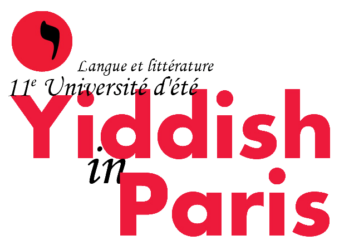Clarisse Brossard
Levels 1 and 2: I will teach elementary grammar using an inductive approach, i.e. starting from concrete examples. Each grammar point will be the subject of specific training: structural exercises and/or exercises based on the communicative method.
Malena Chinsky
Levels 1 and 3: In my classes, I will focus on developping communicative skills and teaching some vocabulary associated with different contexts. I will articulate these elements with various grammar points covered by my colleagues or by myself. My classes will use a rich material, composed of songs and a number of cultural topics.
Sonia Dratwa-Pinkusowitz
Levels 2 and 3: As an interactive language instructor, my teaching nurtures student engagement and participation. The student/teacher relationship is the leading principle that guides the learning. Discussion, debate and short oral presentations are just a few means to study, understand and interpret the literary and cultural texts chosen for each class level. The literature (poems, song, short stories) serves to complement and highlight the grammar taught in the parallel class.
Arnaud Bikard
Level 4: Chelm tales in Yiddish literature and folklore.
The Tales of Chelm, a comic tradition describing the absurd decisions of foolish “wise men”, is the ideal gateway to a rich series of literary texts spanning the entire history of modern Yiddish literature, from Ayzik Meyer Dik to Yankev Glatshteyn. The course will be based on linguistic and literary analysis of the texts, which will serve as a starting point for oral discussions and written compositions.
Level 5: Don Quixote in Yiddish literature
Don Quixote is a symbol of world literature that Yiddish literature has not ignored. From Mendele Moykher Sforim, whose novel is a rewriting of the Cervantes novel, to H. Leyvik, whose poems are inspired by the sad-faced knight, to the many translations of the Spanish novel, we will follow in the footsteps of the hidalgo in Yiddish. The course will be based on linguistic and literary analysis of the texts, which will serve as a starting point for oral discussions and written compositions.
Yitskhok Niborski
Level 5 (1st week): Great poets for little readers
A remarkable number of renowned Yiddish poets have written not only for adults, but also for children. During the five meetings of this series of courses, we will comment on poems for children published by authors such as Yehoyesh (1870-1927), Eliezer Shteinbarg (1880-1932), Mani Leyb (1883-1953), Miryam Ulinover (1890-1944), Leyb Kvitko (1890-1952), Kadye Molodovski (1894-1975) and others. We’ll look at the historical circumstances surrounding their work, their links with the modern Yiddish school and the convergence in their works between universal motifs and others specifically Jewish, linked to folklore or religious education. The lessons will take place during the first week of the summer university; participants will have the option of handing in a written paper on the subject during the second week, giving them the opportunity to draw personal conclusions and, if necessary, receive feedback on their use of language.

